Confused by niacinamide vs vitamin C? Here's the full lowdown on each ingredient's skin benefits and downsides
An expert explains when and how to use niacinamide and vitamin C in your skincare routine for optimal results
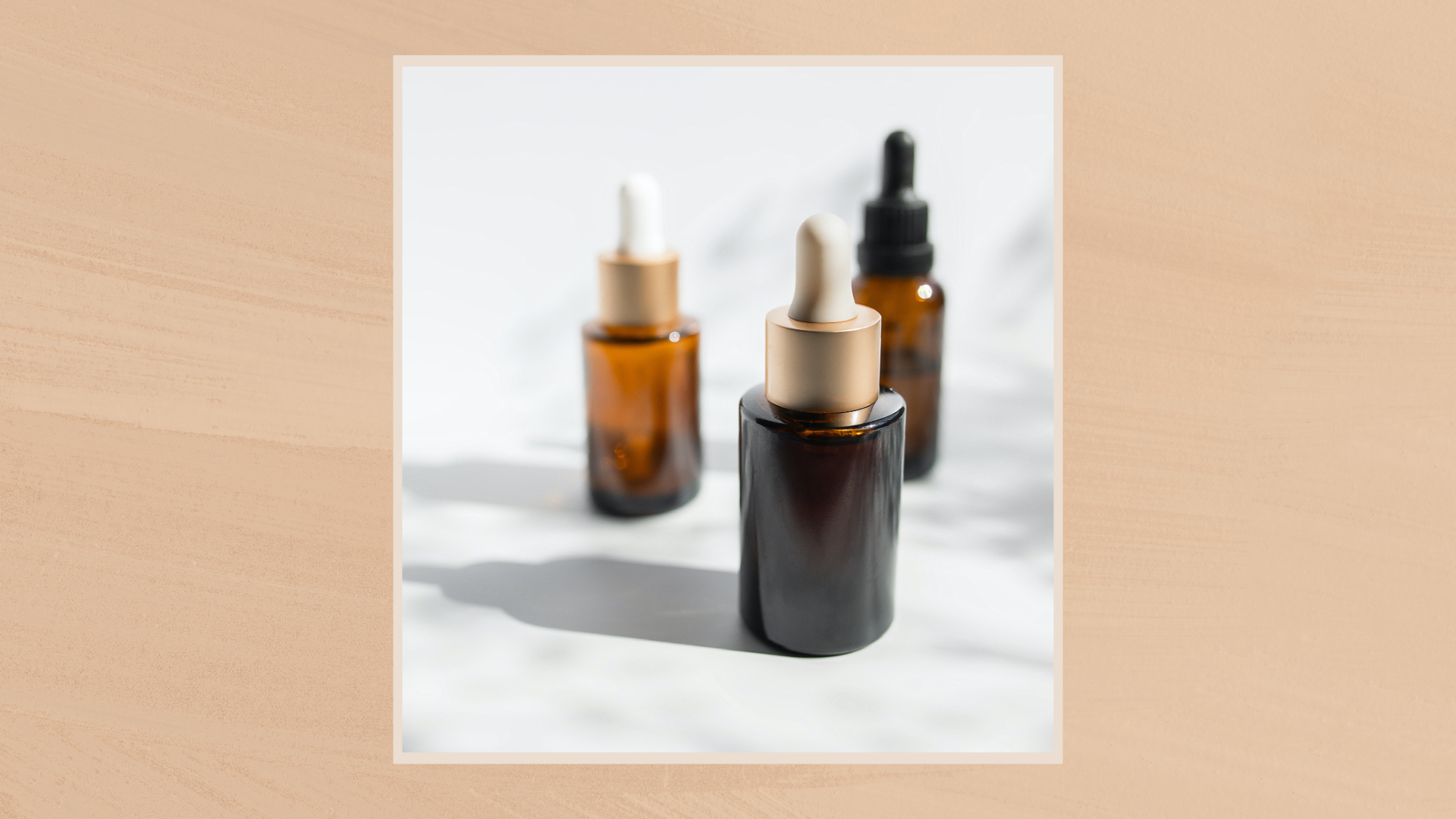

Lucy Abbersteen
Not sure of the benefits of niacinamide vs vitamin C or when you should use each one in your routine? They've both been hailed as skincare superheroes but, as with any powerful ingredient, using them in the right way is key.
With brands claiming that lots of different ingredients are "essential" parts of your skincare routine, it can be hard to pinpoint what you actually need. But, trust us, overloading your skin with too many products can lead to trouble – for both your complexion and your bank account. Active products like the best vitamin C serum can only do their finest work when given the right environment to do so, meaning an understanding of exactly how to layer your skincare combinations correctly is key.
When it comes to niacinamide vs vitamin C, it’s important to know exactly what to use both of these powerful ingredients for and when – if, indeed, you need to use them at all. I’ve enlisted the help of aesthetic doctor Dr. Usman Quershi for his expert take, so you can go forth with all of that knowledge and more. Here's what you need to know, according to an expert...
Niacinamide vs vitamin C: the deep-dive
What are niacinamide and vitamin C?
Before we get into the depths of the niacinamide vs vitamin C debate, let’s break down exactly what each ingredient is. You'll likely know more about the often shouted-about vit C, but if you're wondering what is niacinamide, Dr. Quershi breaks it down for us.
- Niacinamide: "Niacinamide is a water-soluble vitamin. More specifically, it's a form of vitamin B3 that works with the skin’s system of cells."
- Vitamin C: "This is another water-soluble vitamin and mild acid (also known as ascorbic acid). It's one of the most potent antioxidants we can use on our skin."
What are the benefits of niacinamide and vitamin C?
Niacinamide: "Has several benefits but its primary use is anti-inflammatory so it's great for repairing the skin," says Dr. Quershi. "Niacinamide also helps to build ceramides and can also boost hydration, strengthening the skin barrier, evening skin tone, minimising pores and preventing acne."
Vitamin C: This ingredient's best-known benefit is brightening skin, but according to Dr. Quershi, it can do a lot more. "Vitamin C is a superstar ingredient for targeting pigmentation and sun-damaged skin," he says. "It helps enhance collagen production and can also help with lax skin, particularly on the neck and décolletage."
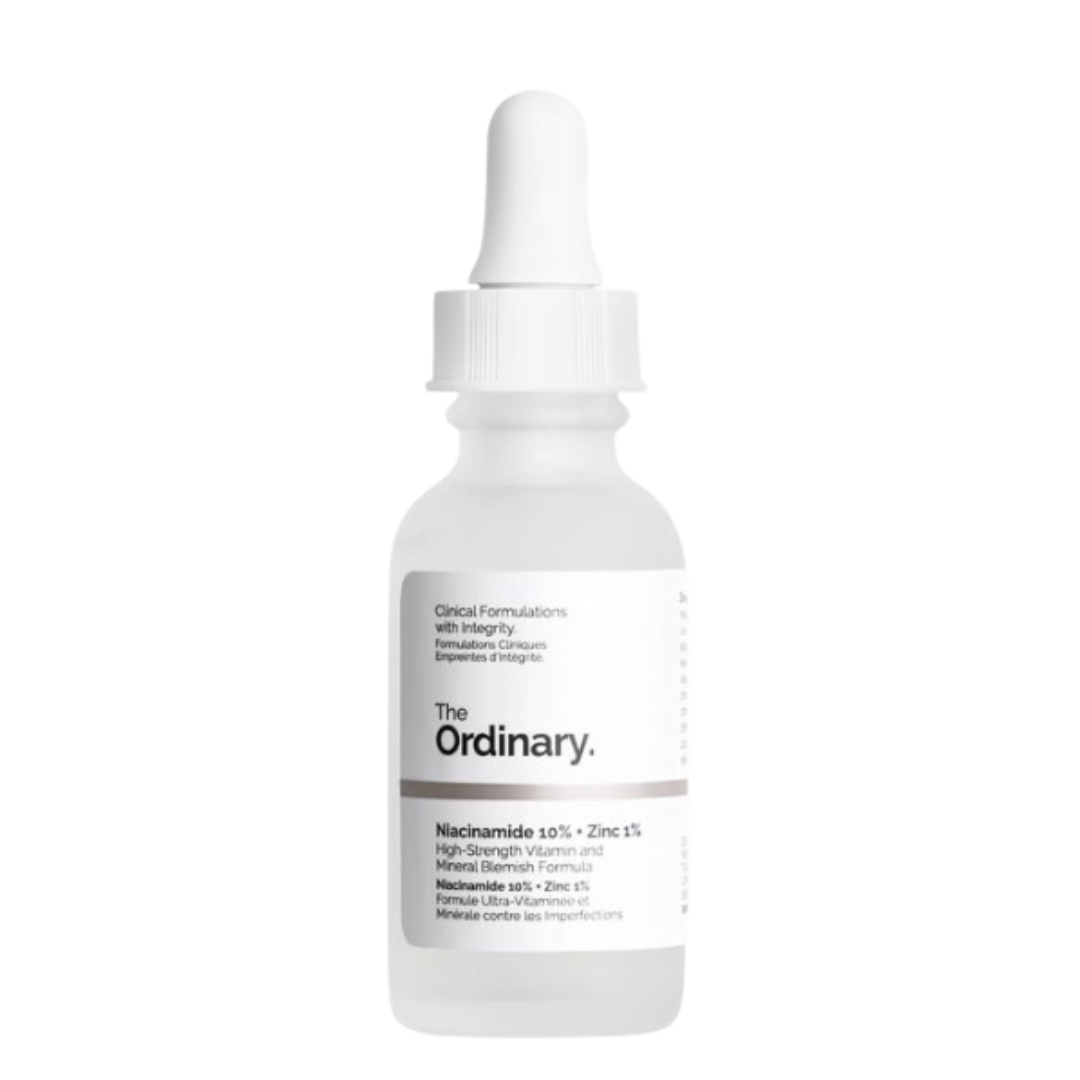
RRP: £5 for 30ml
We're sure you've heard of The Ordinary, famous for its straightforward and affordable products that arguably set the wider trend for ingredient focused skincare. Case in point: its niacinamide and zinc serum, a fan favourite and best seller, only costs a fiver.
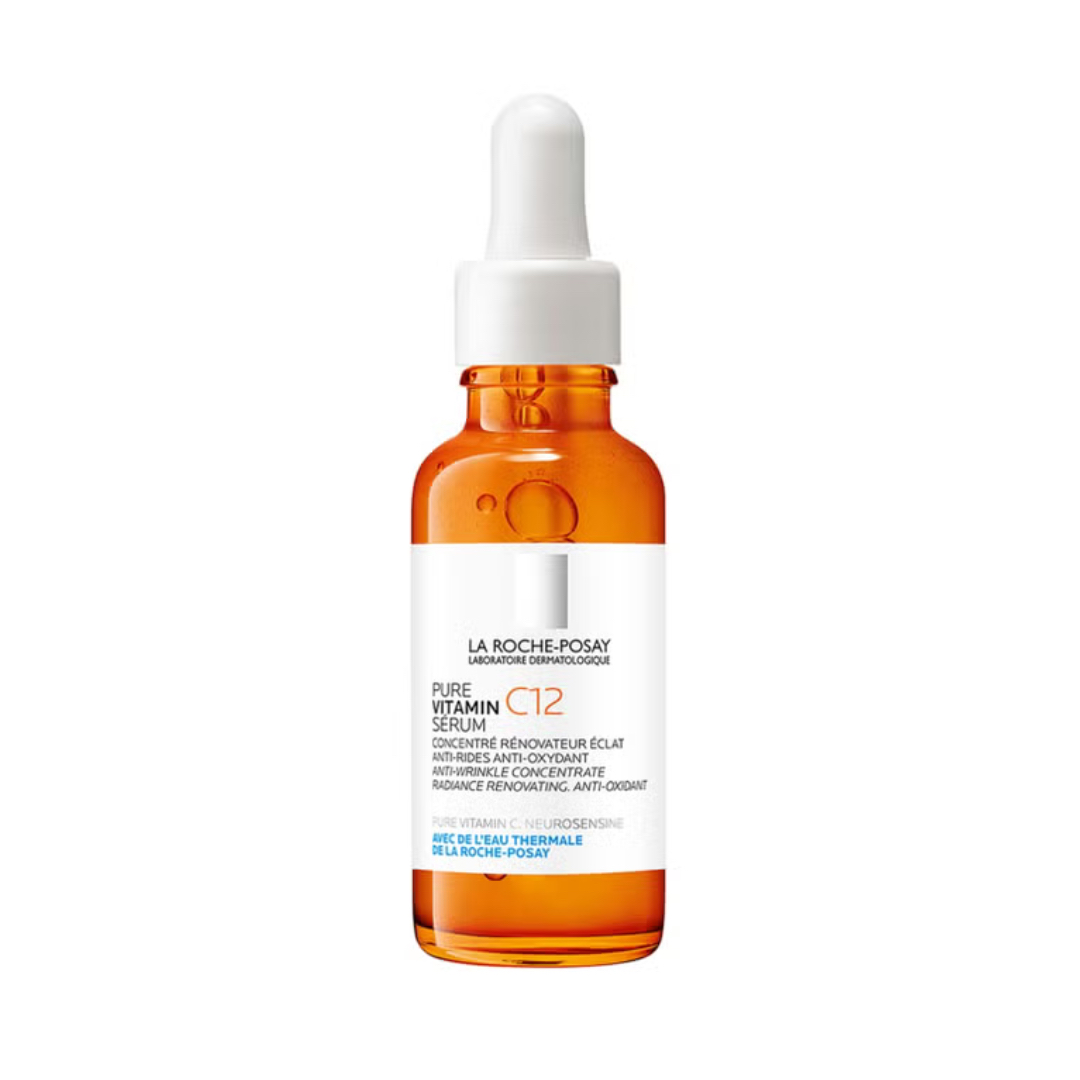
RRP: £45 for 30ml
A brand that's trusted by dermatologists around the world, La Roche-Posay's serum boasts a potent 12% of pure vitamin C to help boost radiance and smooth the look of fine lines and wrinkles. Powerful, yes, but the brand notes it's suitable for all skin types – even sensitive.
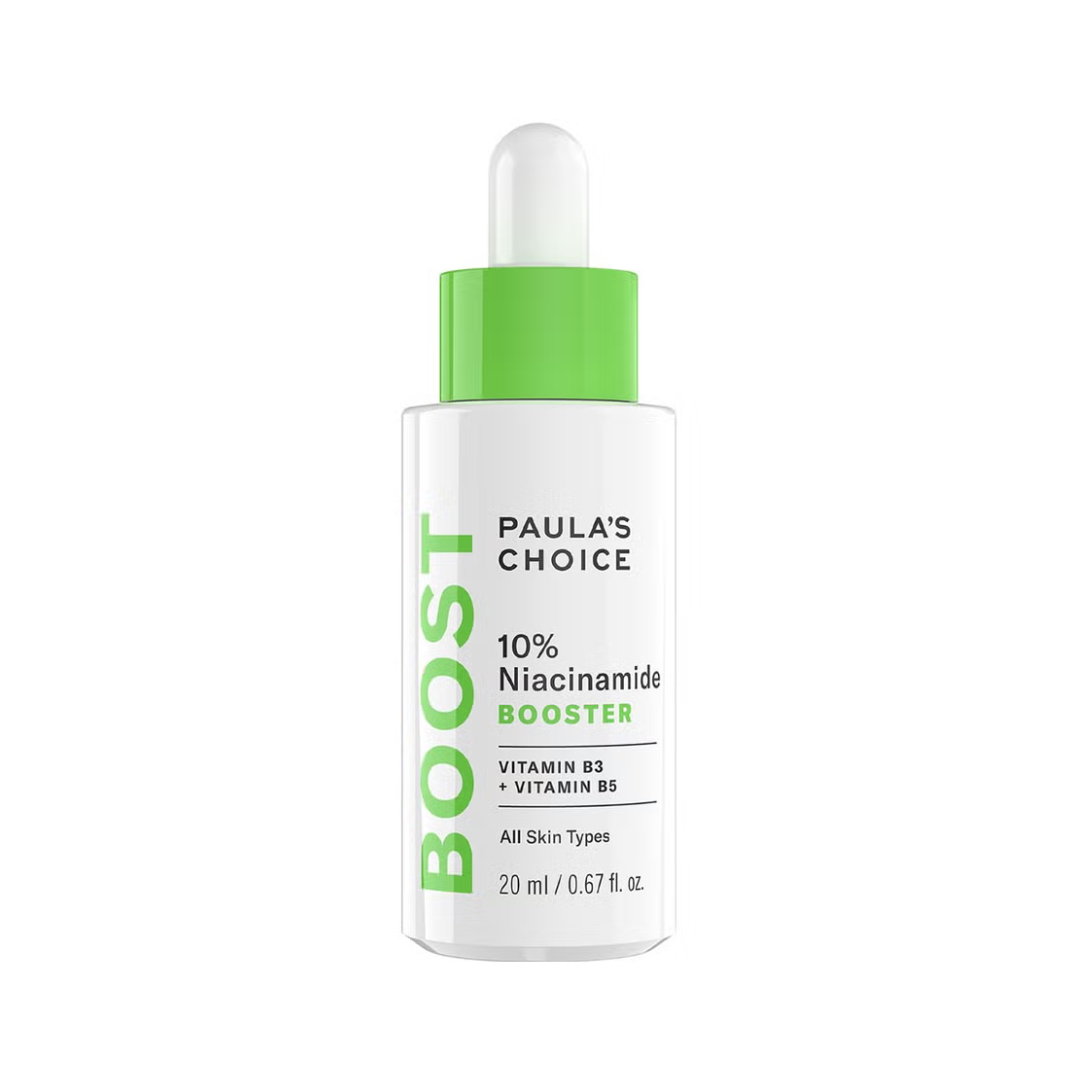
RRP: £49 for 20ml
Another brand that's well-loved among skincare fans, Paula's Choice's boosters are a great way to add specific ingredients to your skincare routine. Formulated with both niacinamide and panthenol (another form of vitamin B), two to to three drops are added to your usual serum or moisturiser to reap these ingredients' rewards.
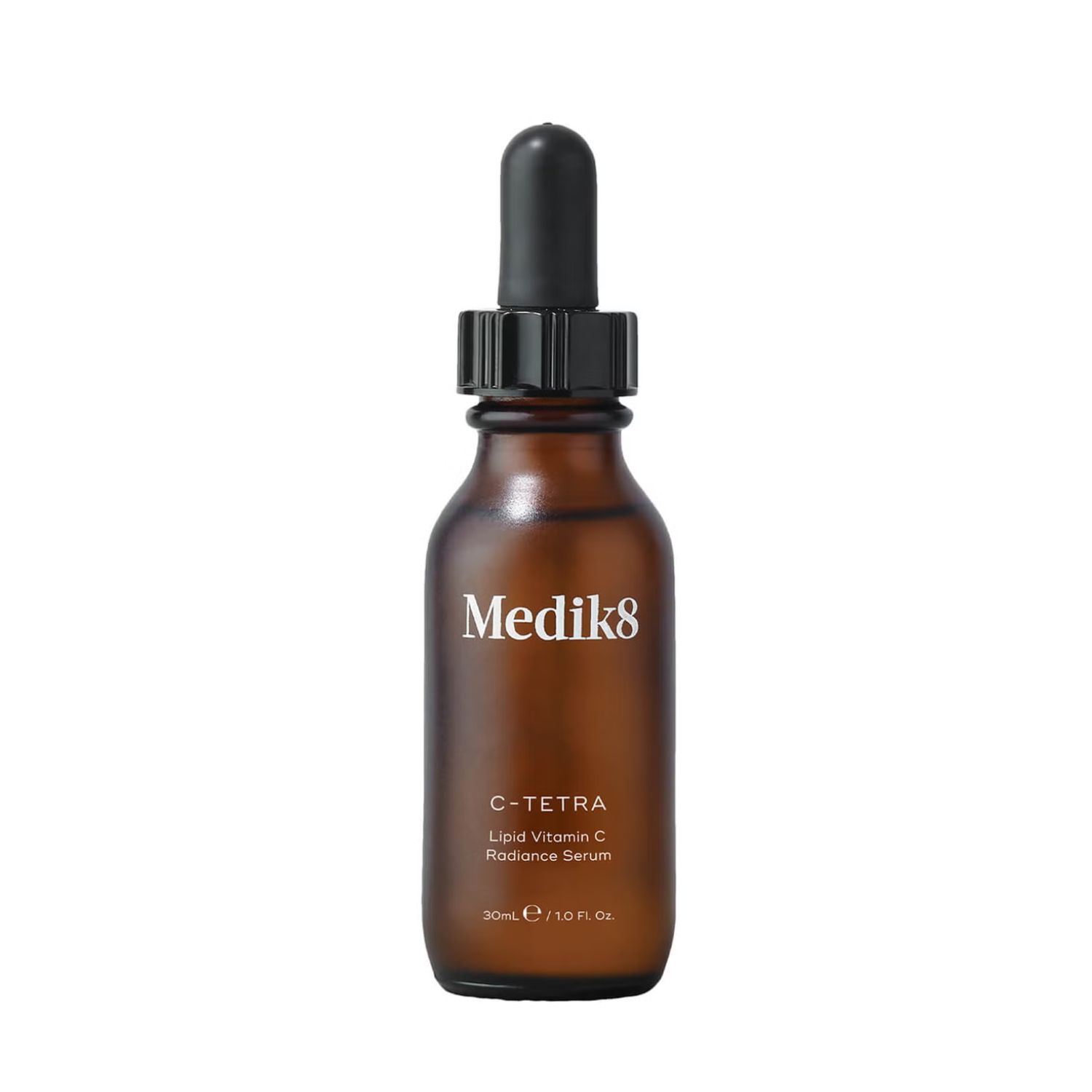
RRP: £39 for 30ml
Another vitamin C serum that's in our guide to the best on the market, Medik8's science backed formulation combines tetrahexyldecyl ascorbate (the vit. C) with vitamin E to help fend off the effects of free radicals.
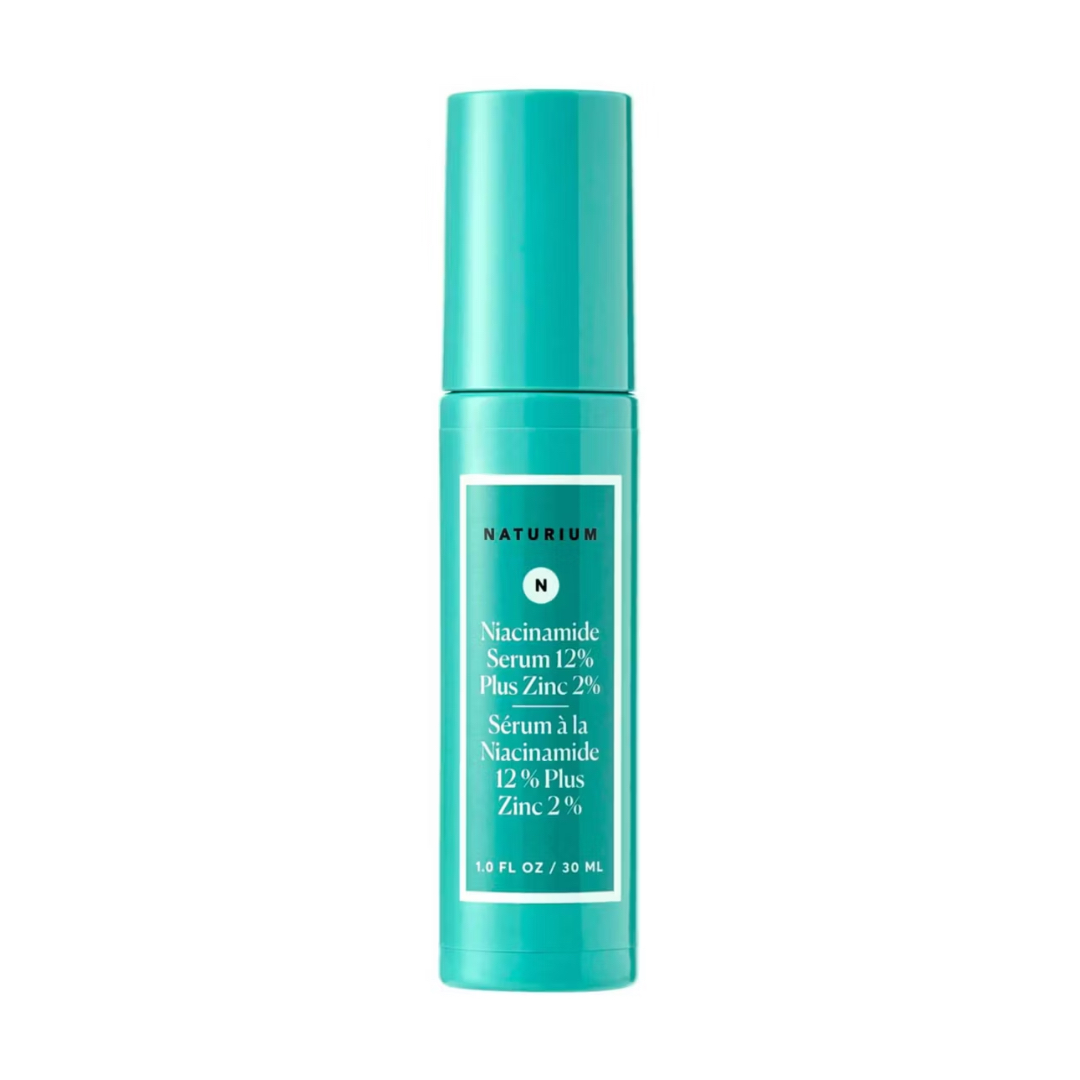
RRP: £18 for 30ml
Though it's not even been in UK stores three years yet, social media sensation NATURIUM has been a huge hit with shoppers since its launch. The brand has a broad range of effective and straightforward serums, including this niacinamide and zinc option.
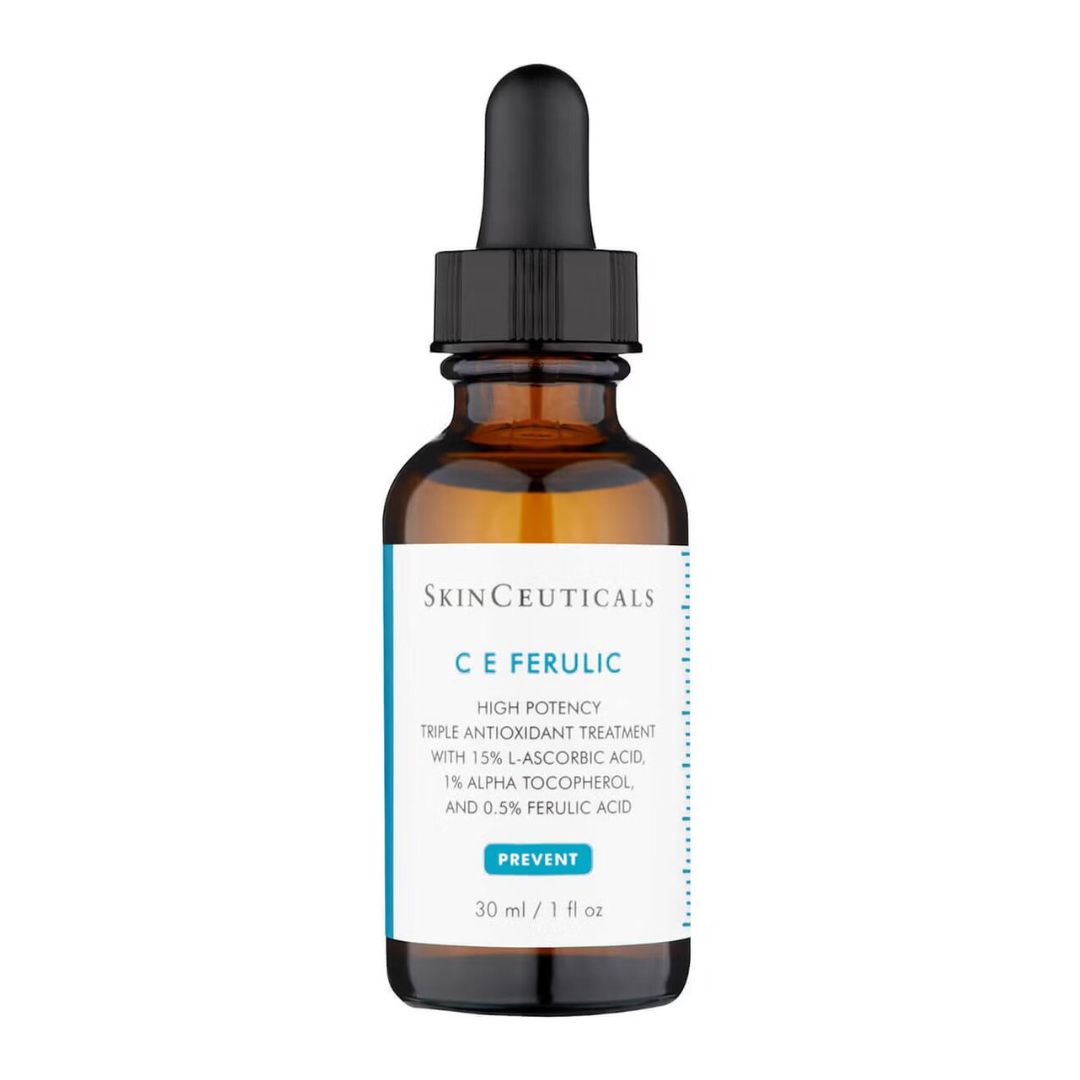
RRP: £165
One of the most famous potent vitamin C serums, SkinCeuticals C E Ferulic Serum has a reputation for results; it's loved by dermatologists, aestheticians and beauty editors alike. It's an incredibly expensive option, no question, but that investment gets you a potent formula backed by the brand's years of research.
Main differences between niacinamide and vitamin C
We're clearly looking at two hardworking ingredients here, but the simplest way to sum up the difference between niacinamide vs vitamin C is it's essentially a case of vitamin B3 vs vitamin C. Though they are both antioxidants, they have quite different benefits, which can be summed up with the following.
Sign up to our free daily email for the latest royal and entertainment news, interesting opinion, expert advice on styling and beauty trends, and no-nonsense guides to the health and wellness questions you want answered.
- Blemishes: Wondering is niacinamide good for acne? You'll often find niacinamide in spot treatments and skincare routines for acne, which isn't the case for vitamin C. That's because the former reduces oil production and also helps with redness, so it can prevent acne from forming, as well as calming any irritation and soreness.
- Irritation risk: Depending on the concentration and form of vitamin C in your serum or moisturiser, it may aggravate your skin. "Niacinamide is gentler for your skin as vitamin C is slightly acidic [therefore] some people with more sensitive skin may prefer niacinamide over vitamin C," Dr. Quershi explains.
- Brightening: With mild exfoliating properties, vitamin C will leave your skin looking brighter and radiant with consistent use; this isn't the case with niacinamide.
- Pigmentation: Niacinamide won't improve the appearance of any pigmentation or age spots, whereas vitamin C is often touted as one of the best hyperpigmentation treatments among over-the-counter options.
- Clashes with other ingredients: Niacinamide gets on well with most other ingredients, but some won't play well with vitamin C. Dr. Quershi advises: "Avoid using glycolic acid, salicylic acid and lactic acid at the same time as applying vitamin C. Generally, the exfoliating acids should be used in the evening and vitamin C in the morning."
Do niacinamide and vitamin C have any downsides?
As touched on above, some may find vitamin C a little bit irritating – but it depends on the strength you're using. Easing in gently will help prevent this though, Dr. Quershi explains. "If you're using a high percentage of vitamin C (between 10–20%) your skin could take some time to build up a tolerance, so you could experience some irritation. If this happens, just use it every few days and gradually build up until your skin gets used to it."
At the other end of the niacinamide vs vitamin C debate, niacinamide seems pretty angelic – there aren't any noticeable downsides unless your skin happens to have a reaction to it. Dr. Quershi notes the unhappy skin symptoms to keep an eye out for, just in case: "As with any skincare ingredient, some people could be allergic or experience irritation when using a new product. Side effects can include itching, redness, and a tingling sensation."
How to use both ingredients
In our experience, the best way to use any active skincare ingredient is in a serum. These super-light formulas sink deeper into the skin than a moisturiser and generally tend to be more stable (provided they're in airtight packaging). There's little point using any active ingredients in a cleanser – it won't sit on your skin long enough to make a difference, so you're just washing the goodness down the drain. When it comes to using any serums – with niacinamide, vitamin C or otherwise – always apply to the skin after cleansing but before your moisturiser and sunscreen.
Can you use niacinamide with vitamin C?
Yes; as with niacinamide vs hyaluronic acid, there's little chance of these two ingredients clashing – so in theory you could use both together if your skin reacts well to them. A good way of combining both would be to use a vitamin C serum and follow on with a gentle cream with niacinamide, so you don't have to worry about layering too many serums on at once. However, if you're happy to layer up the general rule would be to go for the lightest formula to the thickest.
Niacinamide vs vitamin C: our beauty editor's verdict
The niacinamide vs vitamin C debate is quite a balanced one – there are plusses and minuses to both ingredients and you could absolutely use both together, so there's no need for a big rivalry to build. I think there's definitely space for both in any skincare routine, not necessarily together unless you want to. In my experience, focusing on one concern at a time is the best way to get a happy complexion; I'm a skincare minimalist.
Dr. Quershi's verdict is similar. "They are both excellent choices, but my preference would depend on your concerns", he says. "Vitamin C is a perfect choice for pigmentation and dull, tired-looking skin. Niacinamide would be a better choice for those [with] acne or spot-prone skin. Niacinamide is also gentler, so if you tend to have sensitive skin, that would be a better choice. Ideally, I’d recommend both, using vitamin C in the morning and niacinamide in the evening." In other words there's space for both in any routine – no need to bring out the boxing gloves.

Rhiannon Derbyshire is the Senior Beauty Editor for Woman & Home.
She started interning for glossy magazines in 2011 while working alongside her Fashion Journalism degree. There, she was lured to the beauty desk, seduced by red lipsticks, posh shampoos, and every skincare product imaginable. 10+ years into her career, she now writes about all things skincare, haircare and makeup for six national titles and interviews celebrities, experts and brand founders. She oversees and judges products for the Woman & Home skin, hair and beauty awards, testing hundreds of products yearly.
With 3A curls, Rhiannon specialises in writing about curly hair routines and has a penchant for red lipsticks and minimalist skincare routines - with a bit of LED therapy thrown in.